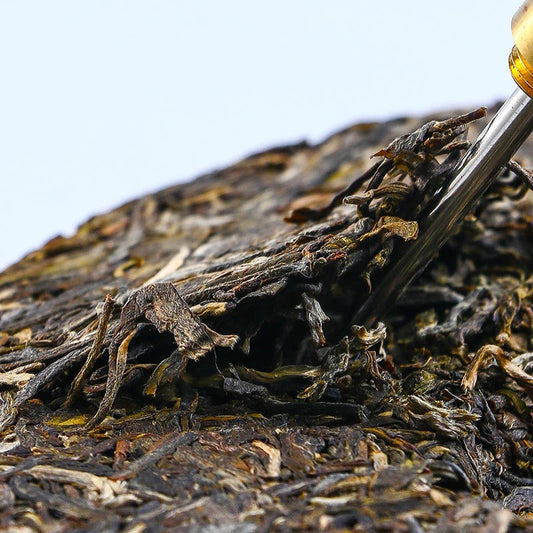Overview
Explore the world of sustainable Pu-erh tea, where ethical practices meet the rich heritage of tea brewing. This article delves into why sustainable teas are gaining popularity and how they benefit both our planet and tea lovers like Eco-Conscious Ethan.
Table of Contents
- Introduction
- Why Sustainable Teas Matter
- The Process of Producing Sustainable Tea
- Health Benefits of Sustainable Teas
- How to Identify and Choose Sustainable Teas
- Impact of Sustainable Teas on the Environment
- Spotlight on Brands That Champion Sustainability
- Conclusion
Introduction
In a world increasingly conscious of its environmental footprint, sustainable teas are emerging as a beacon of hope and health. These teas, cultivated with respect for the environment and the workers, represent a significant shift in the traditional tea industry.
Moreover, This shift is not just about taste; it's a comprehensive approach that encompasses ethical sourcing, environmental stewardship, and social responsibility.
Why Sustainable Teas Matter
The tea industry, while steeped in tradition, has faced challenges regarding sustainability. Conventional tea production often involves practices that can harm both the environment and the tea workers. From the use of chemicals and plastics that pollute ecosystems and endanger marine life to unfair labor practices, these issues highlight the need for a more sustainable approach to tea production.
The Process of Producing Sustainable Tea
Sustainable tea production involves a series of practices that are environmentally friendly and socially responsible. These include the use of voluntary sustainability standards (VSSs) to ensure that the teas are produced under conditions that are beneficial to the environment, the workers, and the consumers. In Kenya, for instance, nearly all tea production complies with these standards, ensuring fair wages and improved working conditions.

Health Benefits of Sustainable Teas
Beyond their environmental and social impact, sustainable teas offer numerous health benefits. Organic farming methods used in sustainable tea production ensure a higher quality product free from harmful chemicals. Green tea, a popular sustainable option, is linked to various health benefits, including cancer prevention, heart disease mitigation, lower blood pressure, anti-inflammatory effects, weight loss, and lower cholesterol.
How to Identify and Choose Sustainable Teas
Consumers looking to support sustainable tea practices should look for certifications such as UTZ (part of Rainforest Alliance) or Rainforest Alliance Certified Tea. These certifications ensure that the teas are produced under stringent sustainability criteria, including improved agricultural techniques, fair wages, and safe working conditions for farmers.
Impact of Sustainable Teas on the Environment
Sustainable tea farming practices significantly reduce the environmental impact of tea production and helps in producing the best organic teas. By avoiding harmful chemicals and reducing plastic use, sustainable teas help protect aquatic ecosystems and reduce the carbon footprint of tea production. These practices are crucial for preserving biodiversity and ensuring the long-term viability of tea-growing regions.
Spotlight on Brands That Champion Sustainability
Several tea brands like Pu-erh Craft are leading the charge in sourcing sustainable tea production. These brands adhere to strict sustainability standards, ensuring that their products are not only of the highest quality but also ethically and responsibly sourced. Our brand aligns with these values, offering a range of sustainable teas that cater to the discerning, eco-conscious consumer.

Conclusion
The rising trend of sustainable teas reflects a growing awareness and commitment to ethical consumption. By choosing sustainable teas, consumers can enjoy a delicious cup while supporting environment friendly and socially responsible practices.
We invite readers to explore our range of sustainable teas at Pu-erh Craft, offering a taste that's not only exquisite but also ethically sourced and beneficial for the planet.
Q&A Section
-
What are the key environmental benefits of sustainable tea farming?
- Reduces environmental impact, preserves biodiversity, and minimizes chemical pollution.
-
How can I verify the authenticity of a sustainable tea brand?
- Look for certifications like UTZ or Rainforest Alliance on product packaging.
-
Are there any health risks associated with non-sustainable teas?
- Non-sustainable teas may contain harmful chemicals and pesticides.
-
What is the difference between organic and sustainable teas?
- Organic teas focus on chemical-free farming, while sustainable teas encompass broader ethical and environmental practices.
-
Can sustainable tea farming practices improve the quality of tea?
- Yes, as these practices ensure healthier soil and plant conditions, leading to better quality tea.
-
How does sustainable tea production contribute to local communities?
- Provides fair wages, improves living standards, and supports community development.
-
Are sustainable teas more expensive than traditional teas?
- They can be, due to the higher costs of ethical and sustainable practices, but prices vary widely.
References
-
"Growing Tea Sustainably: Examples from Kenya, India, and Sri Lanka" - International Institute for Sustainable Development: IISD






